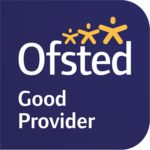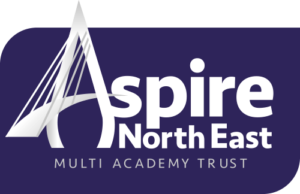Design Technology Curriculum Overview
Aim
Here at Southmoor Academy, we aim to securely equip all of our students for life beyond school as successful, confident, responsible and respectful citizens. We believe that education provides the key to social mobility and our curriculum is designed to build strong foundations in the knowledge, understanding and skills which lead to academic and personal success. We want our students to enjoy the challenges that learning offers.
Our aims are underpinned by a culture of high aspirations. Through developing positive relationships, we work towards every individual having a strong belief in their own abilities so that they work hard, build resilience and achieve their very best.
Intent
Our aim is to develop the creative, technical and practical expertise needed to perform everyday tasks confidently and to participate successfully in an increasingly technological world. We aim to build and apply a repertoire of knowledge, understanding and skills in order to design and make high-quality prototypes and products for a wide range of users. Our students will critique, evaluate and test their ideas and products and the work of others.
By the time students leave Southmoor Academy, they will have gained key knowledge and skills in the 4 main areas of the curriculum: design, make, evaluate and technical knowledge.
- Design
- students will use research and exploration, such as the study of different cultures, to identify and understand user needs
- students will identify and solve their own design problems and understand how to reformulate problems given to them
- students will develop specifications to inform the design of innovative, functional, appealing products that respond to needs in a variety of situations
- students will use a variety of approaches to generate creative ideas and avoid stereotypical responses
- students will develop and communicate design ideas using annotated sketches, detailed plans, 3-D and mathematical modelling, oral and digital presentations and computer-based tools
- Make
- students will select from and use specialist tools, techniques, processes, equipment and machinery precisely, including computer-aided manufacture
- students will select from and use a wider, more complex range of materials and components taking into account their properties
- Evaluate
- students will analyse the work of past and present professionals and others to develop and broaden their understanding
- students will investigate new and emerging technologies
- students will test, evaluate and refine their ideas and products against a specification, taking into account the views of intended users and other interested groups
- students will understand developments in design and technology, its impact on individuals, society and the environment, and the responsibilities of designers, engineers and technologists
- Technical knowledge
- students will understand and use the properties of materials and the performance of structural elements to achieve functioning solutions
- students will understand how more advanced mechanical systems used in their products enable changes in movement and force
In Food and Nutrition pupils will be taught how to cook and apply the principles of nutrition and healthy eating. Southmoor Acadamy will instil a love of cooking in pupils. Learning how to cook is a crucial life skill that enables pupils to feed themselves and others affordably and well, now and in later life.
Engineering Subjects:
- students will develop key engineering practical and technical skills, such as research, observation, measurement, making, using computer-aided design (CAD) and disassembly
- students will develop their knowledge of key engineering sectors (mechanical, electrical/electronic and engineering design) and the interrelation of each in industry
- students will develop their knowledge of the stages involved in planning and implementing an engineering project
- students will develop their knowledge and skills involved in the investigation of solutions to engineering problems in response to a given brief.
Food and Nutrition Subjects:
- students will understand and apply the principles of nutrition and health
- students will cook a repertoire of predominantly savoury dishes so that they are able to feed themselves and others a healthy and varied diet
- students will become competent in a range of cooking techniques
- students understand the source, seasonality and characteristics of a broad range of ingredients.
The curriculum includes formal teaching through subject areas, assemblies and extracurricular activities. We regularly review content to ensure we continue to meet our curriculum aims. The Engineering curriculum is planned to enable all students to develop skills in the following areas:
- To develop an understanding of health and safety
- To gain a range of practical skills in the workshop
- To understand the impact people and products have on the environment
- To gain a wider understanding of the world around us and the impact people and products can have on this
- To understand and apply the principles of nutrition and health
- To become competent in a range of cooking techniques
- To cook a repertoire of dishes to feed themselves and others a healthy and varied diet
Throughout our programmes of study, every attempt is made to make explicit links to careers and the world of work. In addition to subject specific links, we aim to explicitly reinforce the skills and aptitudes which support employers say are important in the workplace;
- Aiming high, staying positive and resilience
- Communication skills (listening, speaking, presenting)
- Teamwork and problem solving,
- Creativity and thinking skills
- Self-management and leadership
The British values of democracy, the rule of law, individual liberty, and mutual respect of those with different faiths and beliefs are taught explicitly and reinforced in the way in which the school operates.
Implementation
We have a wide range of links with industry with a lot of providers on our doorstep. We work closely with companies such as Nissan and TDR who offer a range of external visits and activities to engage students in the world of work. Nissan and Sunderland College focus closely on getting women into engineering and we also collaborate with science on a range of STEM focused events. We have just established a wealth of new links with employers through our business breakfast for future activities. There are also a range of units dedicated to industry in the specification where students must learn about industrial processes and techniques, along with moral obligations of employers and environmental considerations of industrial processes.
Sequence and structure
Our curriculum is split into Key Stage 3 (years 7, 8 and 9) and Key Stage 4 (years 10 and 11).
Key Stage 3 Curriculum
Our Key Stage 3 Curriculum includes the following areas of study:
Click here to view the Year 7 Technology curriculum intent for 2022-2023.
Click here to view the Year 8 Technology curriculum intent for 2022-2023.
Click here to view the Year 9 Technology curriculum intent for 2022-2023.
We know that students who read well achieve well. As such all subject areas are committed to providing regular opportunities to read extensively. We provide regular opportunities for students to read for pleasure and to receive small group interventions if their reading skills are lower than we would expect.
How does our Curriculum cater for students with SEND?
Southmoor Academy is an inclusive academy where every child is valued and respected. We are committed to the inclusion, progress and independence of all our students, including those with SEN. We work to support our students to make progress in their learning, their emotional and social development and their independence. We actively work to support the learning and needs of all members of our community.
A child or young person has SEN if they have a learning difficulty or disability which calls for special educational provision to be made that is additional to or different from that made generally for other children or young people of the same age. (CoP 2015, p16)
Teachers are responsible for the progress of ALL students in their class and high-quality teaching is carefully planned; this is the first step in supporting students who may have SEND. All students are challenged to do their very best and all students at the Academy are expected to make at least good progress.
Specific approaches which are used within the curriculum areas include:
- 1:1 support with practical tasks through the use of the DT technician
- Resources adapted to accommodate a range of SEND needs
- Practical tasks demonstrated and more challenging stages recorded to be viewed by the learner as needed
- Seating plans to allow for peer/teacher support
- A range of learning styles embedded in all lessons
How does our curriculum cater for disadvantaged students and those from minority groups?
As a school serving an area with high levels of deprivation, we work tirelessly to raise the attainment for all students and to close any gaps that exist due to social contexts. The deliberate allocation of funding and resources has ensured that attainment gaps are closing in our drive to ensure that all pupils are equally successful when they leave the Academy.
More specifically within the teaching of Design Technology we;
- In Design Technology, each member of staff holds a teaching handbook that identifies disadvantaged pupils.
- Pupils are placed in the classrooms with careful consideration so that they receive high quality focus and support from staff and peers.
- Targeted support for under-performing students
- Intervention available throughout the week
- Technician support with practical tasks
- Engagement through the use of practical learning
How do we make sure that our curriculum is implemented effectively?
- The Design Technology curriculum leader is responsible for designing the Design Technology curriculum and monitoring implementation.
- The subject leader’s monitoring is validated by senior leaders.
- Staff have regular access to professional development/training to ensure that curriculum requirements are met.
- Effective assessment informs staff about areas in which interventions are required. These interventions are delivered during curriculum time to enhance pupils’ capacity to access the full curriculum.
- Curriculum resources are selected carefully and reviewed regularly.
- Assessments are designed thoughtfully to assess student progress and also to shape future learning.
- Assessments are checked for reliability within departments and across the Trust.
How do we make sure our curriculum is having the desired impact?
- Examination results analysis and evaluation, reported to the senior leaders and the local governing body to ensure challenge
- Termly assessments-analysis and evaluation meetings
- Lesson observations
- Learning walks
- Book scrutiny
- Regular feedback from Teaching Staff during department meetings
- Regular feedback from Middle Leaders during curriculum meetings
- Pupil surveys
- Parental feedback
- External reviews and evaluations





